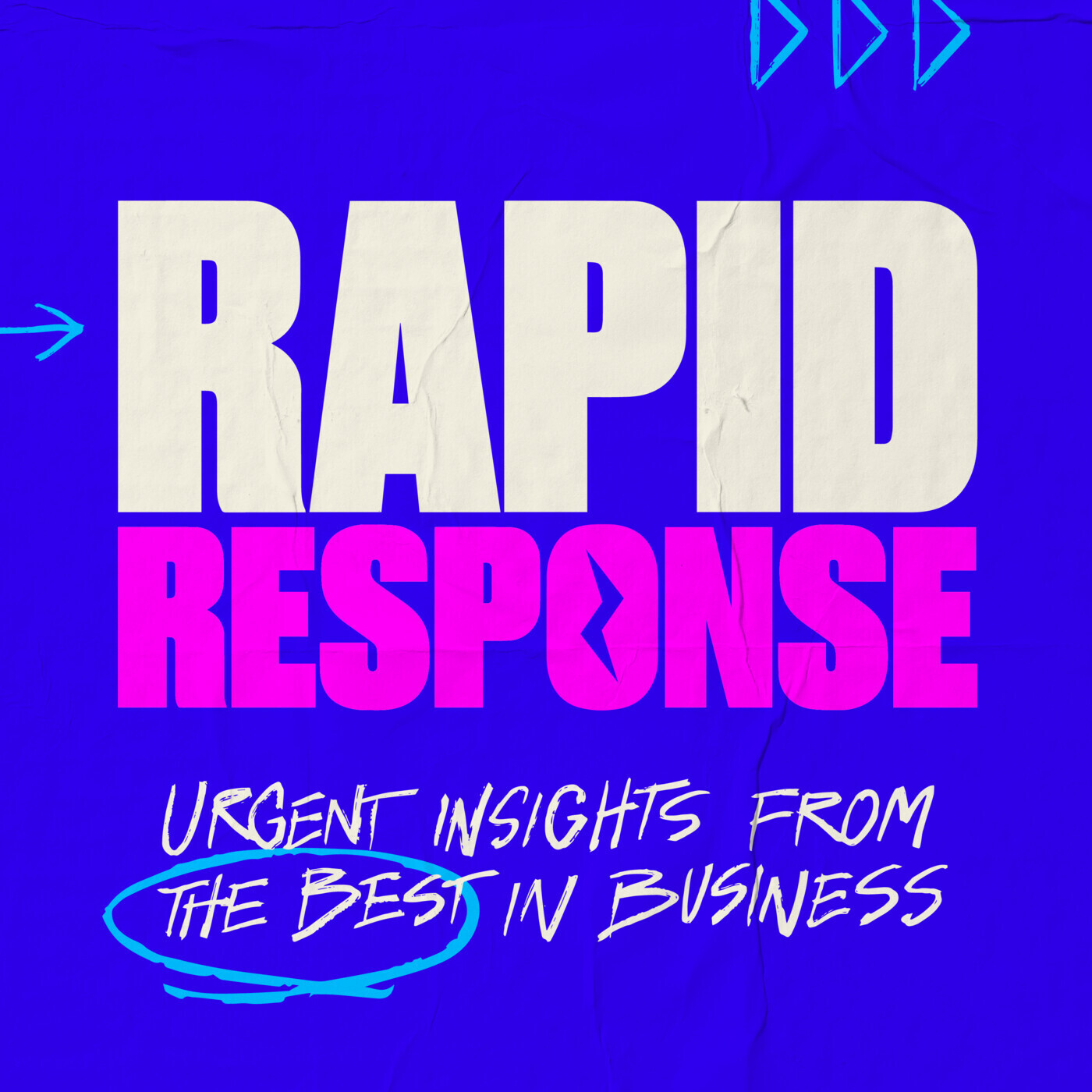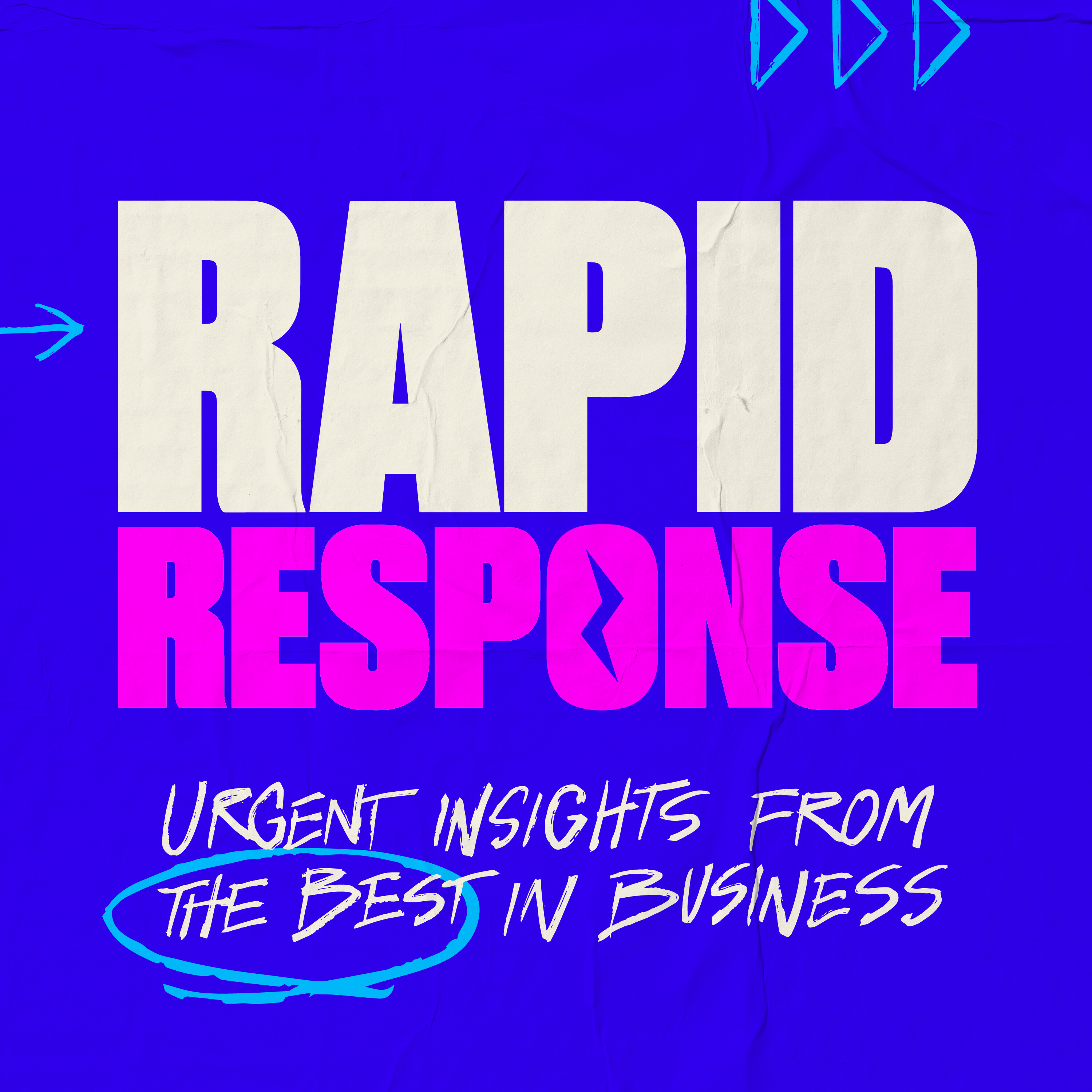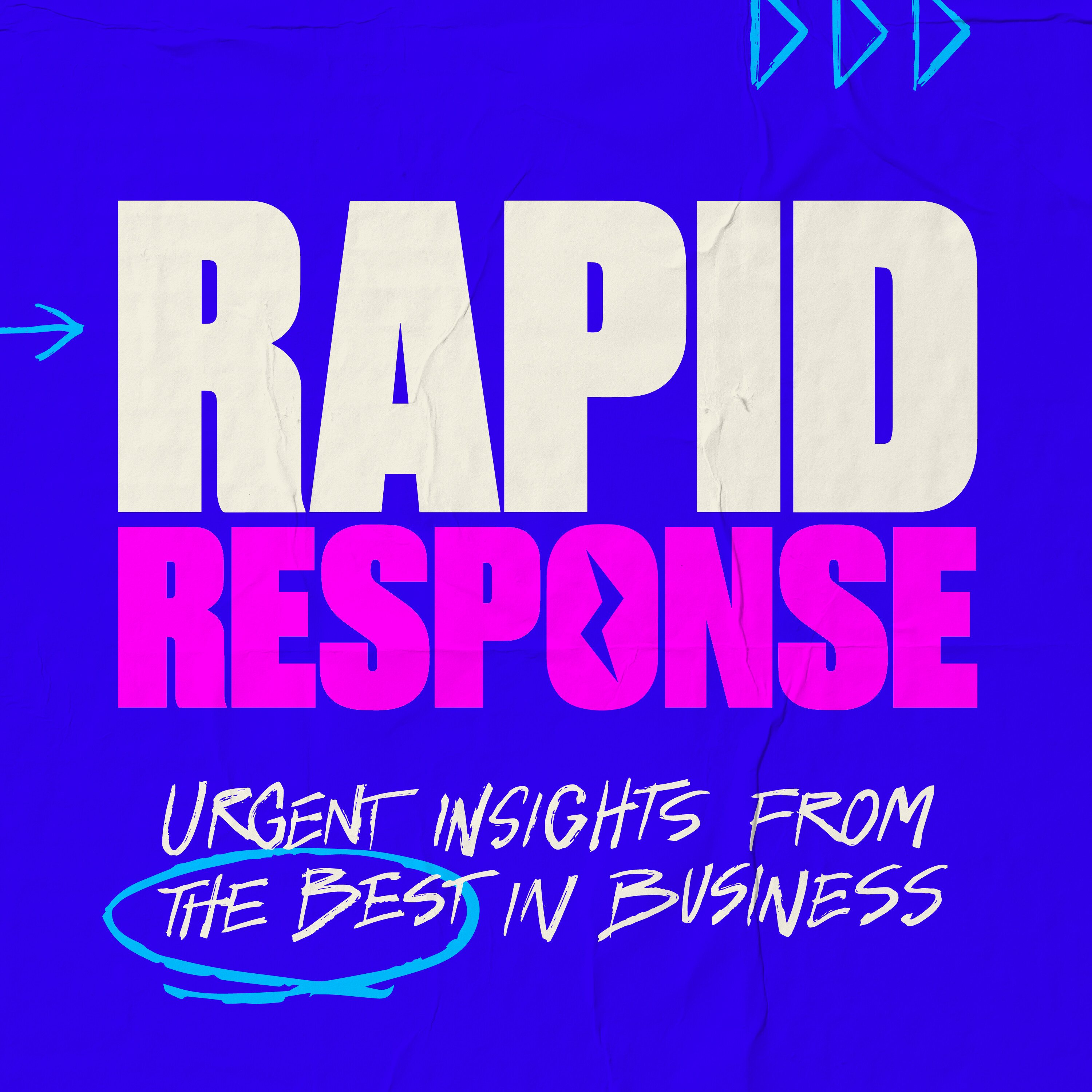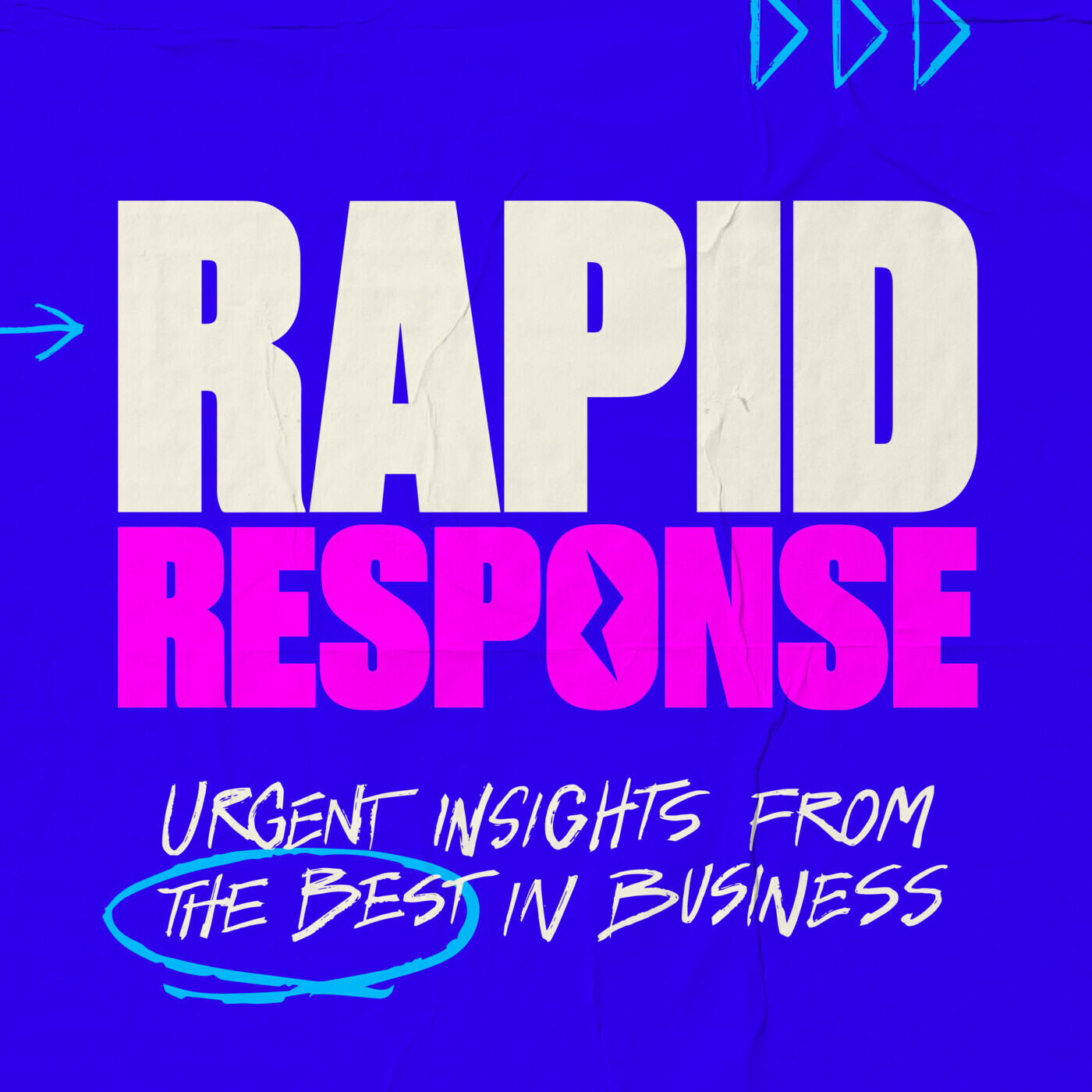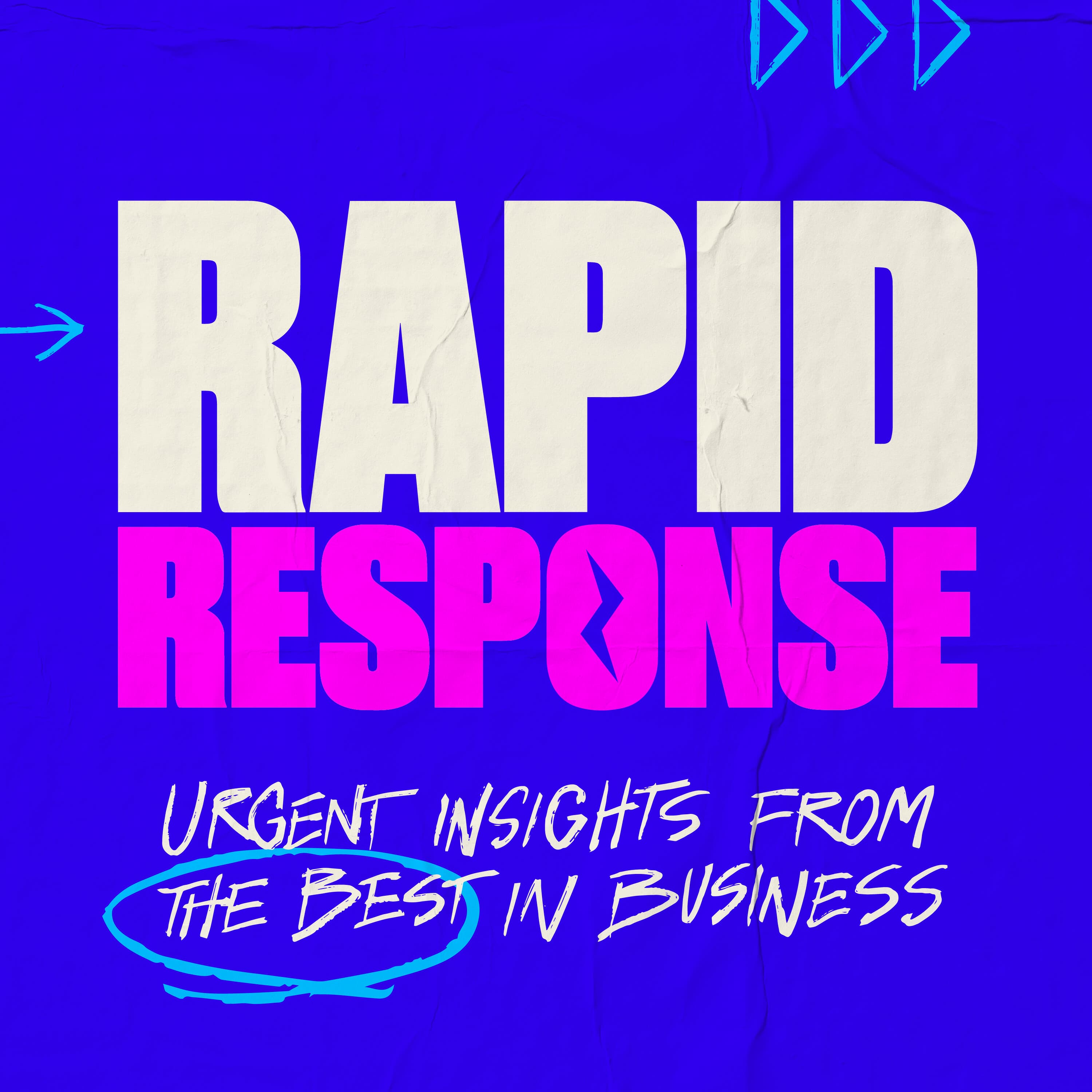
October 29, 2024 • 38min
Rapid Response: Lessons from Gaza & Israel, with World Central Kitchen’s Erin Gore and the Builders Movement's Daniel Lubetzky
Masters of Scale
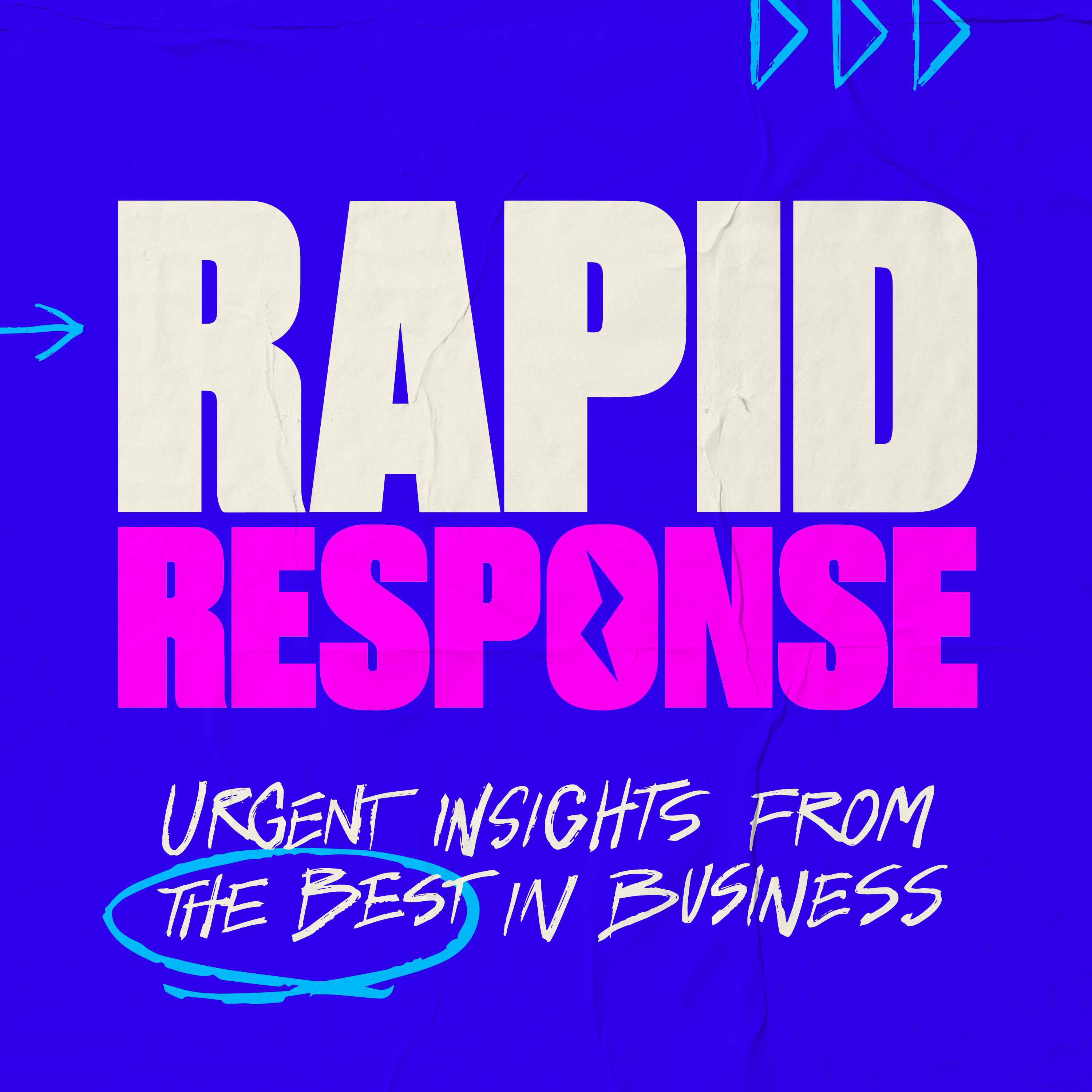
Key Takeaways
- Humanitarian Aid in Crisis Zones: World Central Kitchen has served over 75 million meals in Gaza while operating in extremely dangerous conditions
- Leadership During Crisis: Leaders must make quick decisions with incomplete information while setting aside personal emotions
- Building Bridges: Despite extreme polarization, there remains critical importance in building connections between divided groups
- Role of Community: Local community members are essential partners in humanitarian work and peace-building efforts
- Fighting Extremism: Extremist forces on all sides are winning by manipulating people and increasing divisions
- Need for Determination: Success requires determination rather than just optimism - it's about "filling the glass" rather than seeing it as half full or empty
Introduction
This episode features a live discussion from the Masters of Scale Summit between World Central Kitchen CEO Erin Gore and Daniel Lubetzky, founder of Kind Snacks and the One Voice Movement. The conversation focuses on managing humanitarian aid and peace-building efforts amid the ongoing conflict between Israel and Gaza, while exploring broader lessons about leadership during crisis.
Topics Discussed
World Central Kitchen's Work in Crisis Zones (03:56)
Erin Gore discusses World Central Kitchen's humanitarian aid efforts in Gaza, Israel and Lebanon:
- Scale of Impact: Served over 75 million meals in the region
- Local Operations: Employs 500 Palestinians who continue the work despite extreme danger
- Tragic Loss: Seven World Central Kitchen aid workers were killed by an IDF strike in April
Leading Through Crisis (05:00)
Gore shares insights on leadership during extremely challenging situations:
- Quick Decision Making: Must act decisively with incomplete information
- Emotional Management: Need to set aside personal emotions to focus on immediate priorities
- Team Support: Balancing safety concerns with the mission to provide aid
Building Bridges Amid Conflict (12:38)
Daniel Lubetzky discusses his experience building connections between Israelis and Palestinians:
- Business as Bridge Builder: Used business ventures to break stereotypes and build relationships
- Personal Impact: Lost staff members and family on both sides of the conflict
- Global Implications: Seeing similar polarization patterns worldwide
The Challenge of Neutrality (25:54)
Discussion of maintaining neutrality while providing humanitarian aid:
- Mission Focus: World Central Kitchen's simple mission to feed people without questions
- Team Emotions: Managing strong feelings from team members while maintaining neutrality
- Business Community: Mixed support from global business community in protecting aid workers
Understanding Both Sides (29:25)
Insights from Palestinian business leader EZ Mari:
- Local Perspective: Majority of Palestinians want peace and economic prosperity
- Two-State Solution: No alternative to two proud peoples each having their own state
- Bridge Building: Wars destroy bridges that take years to build
Path Forward (34:10)
Discussion of potential solutions and next steps:
- Community Power: Local communities remain source of hope and humanity
- Timeline Challenges: Uncertainty about conflict resolution timeframe
- Future Focus: Need to prepare for post-conflict reconstruction and reconciliation
Maintaining Motivation (37:34)
How leaders stay motivated in ongoing crisis situations:
- Community Inspiration: Drawing energy from seeing humanity's best in darkest moments
- Determination vs Optimism: Focus on action rather than just hoping for better outcomes
- Purpose-Driven: Clear sense of purpose helps maintain focus despite challenges
Conclusion
The conversation highlights the complex challenges of providing humanitarian aid and building peace in conflict zones. Key lessons emerge about leadership during crisis, the importance of maintaining neutrality while acknowledging human emotions, and the critical role of local communities in both aid work and peace-building efforts. The speakers emphasize that success requires determination rather than just optimism, and that even in the darkest moments, humanity's best qualities can emerge.
The discussion also underscores the global implications of the conflict and polarization, with similar patterns of division appearing worldwide. The speakers argue for the importance of understanding both sides of conflicts and maintaining hope for eventual resolution, while acknowledging the difficult work required to achieve lasting peace.

